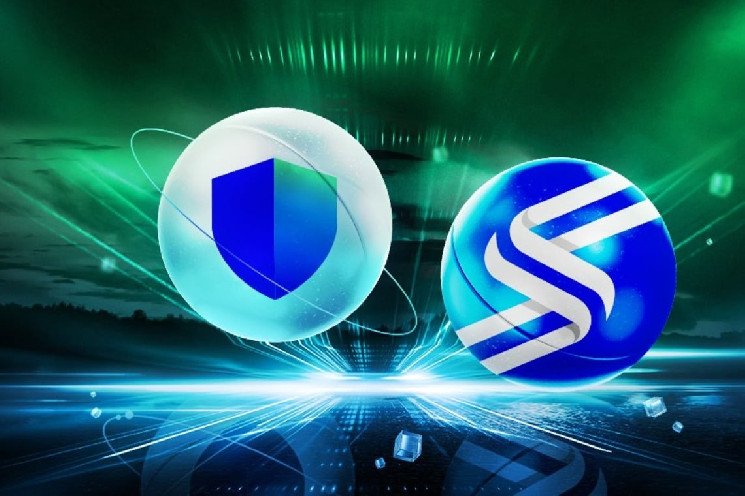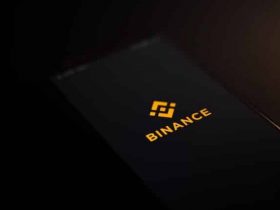A few days ago, the integration of the API of the crypto exchange Rango within Trust Wallet was announced.
🚀 Thrilled to announce that @TrustWallet has integrated Rango’s API for seamless #crosschain swaps and bridging! Users can now transfer assets across 10+ chains effortlessly. 🔄
📄 More details:https://t.co/HCjiPu15Sz#Crypto #Blockchain #DeFi pic.twitter.com/QLuRrHlpXu
— Rango (💙, 🔄) (@RangoExchange) August 7, 2024
Thanks to this integration, users of the famous crypto wallet can transfer assets on over 10 chains effortlessly.
Crypto news: the integration of Rango Exchange in Trust Wallet
Rango is precisely a cross-chain aggregator that supports various blockchains. Among these are both EVM-based and Cosmos-based ones, but also ZK-rollups and those based on UTXO. In the future, it will also support Ton, Aptos, Sui.
Technically, their platform integrates various DEX, bridges, and aggregators from the DeFi world on different chains, thus aggregating all their liquidity to create a sort of decentralized mega-liquidity.
Additionally, it performs even complex and multi-step swaps to provide a better user experience thanks to an easy-to-use interface.
Trust Wallet: the non-custodial crypto wallet
Trust Wallet is one of the most used non-custodial crypto wallets in the world.
Technically it is an app for smartphones but also available as an extension for the Chrome browser.
It is a multi-chain and self-custody Web3 wallet, and it aims to be a gateway to Web3 for people who want to own, control, and leverage the power of their digital assets.
It has existed for seven years now, and claims to have 130 million users around the world.
Behind the development of Trust Wallet in recent years is Binance, so much so that the first integrations with the DEX arrived as early as 2019.
The new integration
Despite Trust Wallet having integrated several DEXs on different chains for some time, it has always been a bit complex (and expensive) to perform cross-chain swaps.
The integration of Rango’s API is precisely aimed at simplifying this type of exchanges.
Trust Wallet supports a wide range of cryptocurrencies, not just those on EVM chains. Additionally, it allows cryptocurrency purchases in fiat currency through third-party platforms such as Transak and MoonPay.
It also supports the purchase, sale, exchange, and storage of NFT, as well as staking on the crypto that support it.
It has also always offered integrated exchange features, including multi-chain, which will now become broader and more convenient.
Cross-chain transactions
Cross-chain transactions are a resource, but currently they are still a problem.
The fact is that decentralized blockchains do not communicate with each other, except thanks to relatively complex bridges.
This means that, for example, to make a cryptocurrency exchange between two different chains (like Ethereum and Solana), it is necessary to perform two distinct operations on the two chains, using wrapped tokens whose security level is not 100% guaranteed.
A solution to make this process simpler, and perhaps even more economical, is to use platforms that have great liquidity, and therefore allow multiple exchange operations to be executed simultaneously.
If designed and implemented well, these platforms can present themselves to the user with simple and easy-to-use interfaces, thus combining time and cost savings with a simplified user experience.
In other words, they replace the users themselves in all those intermediate steps necessary for the various cross-chain transactions to be completed, leaving the user only the task of choosing which crypto to buy and with which crypto to pay.
The user themselves will ultimately only see the outgoing transaction with which they pay for the purchase, and the incoming transaction of the crypto they have purchased, while everything else is managed by the platform.
If the interface used by the user is a non-custodial wallet, the user will have full and total control of the funds purchased in this way, once received.
The token of Trust Wallet
Trust Wallet also has its own token, TWT (Trust Wallet Token).
It is a fourth-tier token, with a market capitalization of only 360 million places that places it beyond the hundredth position.
It landed on the crypto markets four years ago, before the last big bullrun, and has a market trend that does not follow the general market trend very much.
In fact, if in 2021 its price did increase significantly, from $0.10 to $1.5, during the crypto bear-market of 2022 it did not collapse.
It was limited to returning to $0.5, but only to then resume growing in the second half of the year.
In fact, the all-time high of $2.7 was recorded at the end of 2022, during the period of the greatest decline in the crypto market of that year.
Being a token linked to a non-custodial wallet, the problems experienced in 2022 by various centralized and custodial platforms (Celsius, BlockFi, and especially FTX) ended up shifting a good part of the attention towards decentralized solutions. Trust Wallet also benefited, like all other non-custodial solutions.
During the course of 2023, its price fell below $0.8, only to return to $1.6 for a brief moment in 2024.
Now it is again at $0.86, a figure very close to the highs of the first phase of the bullrun in the first part of 2021.







Leave a Reply